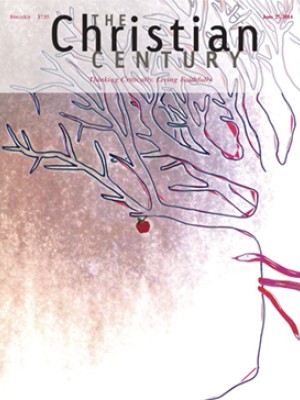It takes practice
Living life as a Christian is a matter of practices: praying, worshiping, singing, sharing, and giving. When scholars take up the topic they are inclined to use the term praxis. Alasdair MacIntyre, for instance, proposes that virtues are formed by a community’s “social praxis.”
In this issue, Benjamin Dueholm reflects on the place of practices in the formation of faith and a faithful life ("Why I kiss my stole"). “Rituals,” he says, “bridge the divide between inward and outward, spirit and flesh, intention and action.” Dueholm began to kiss his liturgical stole years ago, just before placing it around his neck for worship. He understands Augustine’s concern that rote practices can become compulsions, and he reminds us of Jesus’ prophetic words about empty piety. Nevertheless, he believes that the act is “a sign of reverence for a task that must be lovingly and faithfully done whether or not I feel awed by it at a given moment.”
Read our latest issue or browse back issues.
I’ve always sensed a poverty of praxis in my own Reformed ecclesiology. Growing up, I noticed that my Catholic friends wore crucifixes, went to confession, ate cheese sandwiches for lunch on Lenten Fridays, and showed up one day in early spring with a smudge of ashes on their foreheads. Although we made fun of how they crossed themselves at the free-throw line or home plate, I secretly envied them.
In a moment of religious enthusiasm I purchased a Celtic cross and wore it on a chain around my neck. My father did not approve. “You look like a Catholic,” he said. “We don’t wear our religion on our sleeves like they do.” But these days Reformed Protestants are taking practices seriously too: anointing, laying hands on the sick, even imposing ashes on Ash Wednesday. As for the Celtic cross, I dug it out recently and gave it to a grandson on his confirmation.
I was reminded of the importance of praxis at granddaughter Lilly’s first communion. She recently celebrated her first communion at her mother’s Roman Catholic church, where the congregation reflects the neighborhood: its members are at least half Hispanic. Fifty second graders came down the aisle two by two, the Hispanic girls in lacy white dresses and veils, the boys in coats and ties, with one lad in an elegant white tuxedo. Anglo girls wore modest white hair bows, although I’m told there was a fair amount of “veil envy” among them. The children sang a song and had speaking parts. The priest, a good friend of mine, invited me to administer the cup to my granddaughter. She looked up at me as I said, “The blood of Christ, the cup of salvation, for you, Lilly.” I was deeply grateful to be part of that moment.
My eight-year-old grandson Alex’s Presbyterian church also understands the formative importance of practices. His mother helps with communion, which is celebrated by intinction. Alex helps by holding the basket of bread and saying to each worshiper, “The bread of life.” His mother offers the cup and says, “The cup of salvation.”
One Sunday they were assigned to take the elements to the people sitting in the balcony. As Susan climbed the balcony stairs she realized that Alex was not following her. She turned around and saw him at the bottom of the stairs. “What are you doing, Alex?” she asked. He gave an answer that’s packed with theological and sacramental significance. He said, “I’m eating the bread of life. I’m hungry.”







